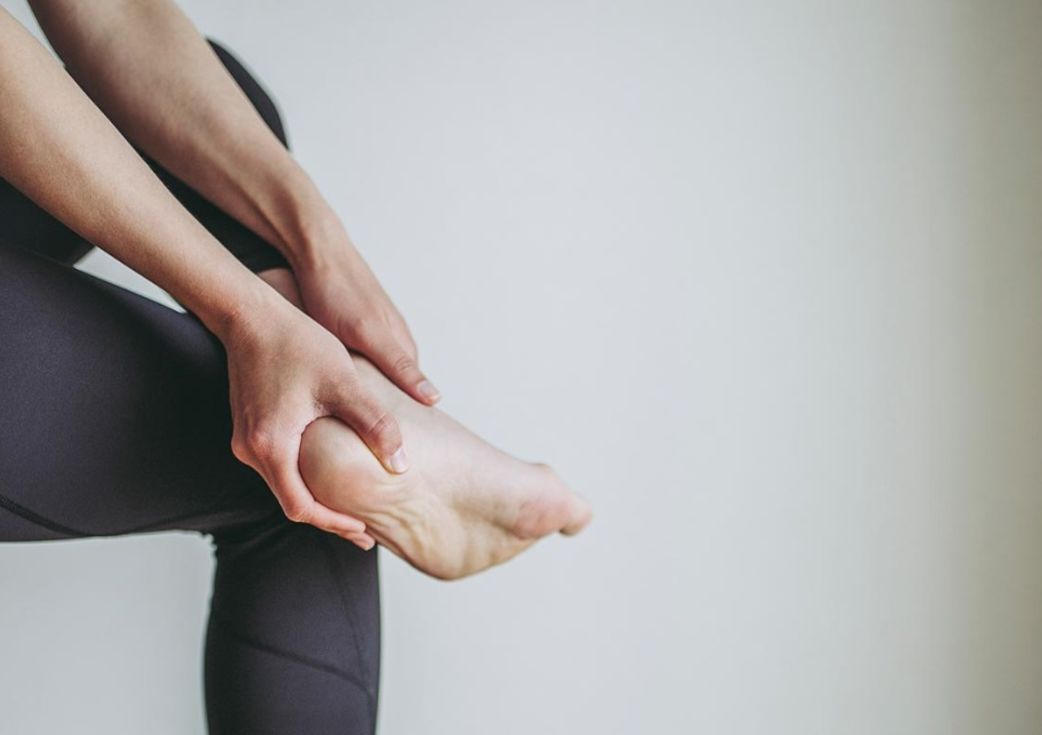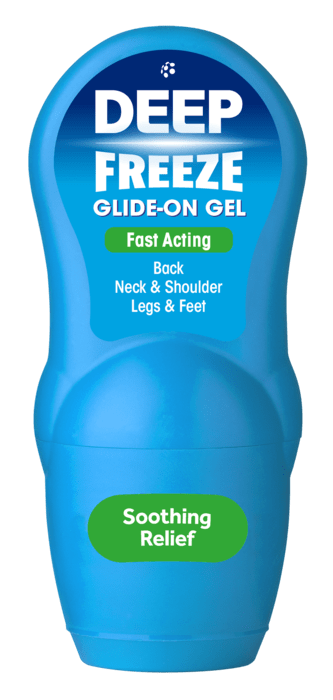
BEST FOOT FORWARD
More than half of Brits have experienced hot and tired discomfort in their feet and legs since the pandemic – yet most (75%) just ignore it and carry on.*
And not only were people stoic about pushing through the ‘can’t carry on barrier’, a third said they never take rest days when their joints and muscles are feeling off colour and, in those who do, almost four in ten say they feel guilty about it.
Physiotherapist, Sammy Margo, says: “We should never feel guilty for giving our legs and feet a break – as ignoring the problem will most likely make it worse. Using a fast acting, non-medicinal, cooling glide-on product is my go-to self-care solution and Deep Freeze Glide-On Gel ticks all the boxes here. I use it at the earliest sign of hot, tired legs and feet, followed by getting to the root cause of the problem. The solution could be more supportive footwear, rebalancing your stance if you tend to favour one leg when standing, or stretching your toes and arches if you have been doing a lot of walking or wearing high heels.”
Walking on glass
Many adults have experienced foot distress, or have had hot, tired discomfort in their ankles or calves and soles/ arches of their feet - saying it felt their feet was walking on broken glass.
The main reason for overworked feet and legs was taking part in exercise, standing for too long or wearing the wrong type of shoes.
Physiotherapist, Sammy Margo adds: “Hot, tired feelings in the lower legs is often overlooked but research shows that if we don’t address uncomfortable legs and feet, it can have a knock-on effect in other body areas like the back.
“Another reason for paying attention to what our feet are telling us is they carry the entire weight of our body each day as we go about our work and daily activities. Shoes, desk positions, or how a driving seat is set up can all lead to uncomfortable legs and feet.
“Simple everyday activities that we do without thinking can affect your legs and feet, such as standing for too long at work, walking long distances, working out with old worn-out trainers or wearing unsupportive shoes. Ugg boots, ballet pumps and summer flip flops are the worst offenders when it comes to caring for our feet as they provide very little arch support”.
Pay heed to early warning signs
Most people do listen to their bodies and know the early warning signs to slow down yet most still refuse to take a rest despite their feet feeling hot, tired and weary. Not only this, but people are also determined to hobble through work meetings, even if they feeling uncomfortable and would choose to bail out of a social event more than a work meeting!
Sammy Margo notes further: “We should definitely pay attention to what our feet are telling us as they carry the entire weight of our body each day. Uncomfortable, tired, hot legs and feet are flagging up that something isn’t right with your lifestyle. It could be your shoes, your posture at work, or how your car seat is set up for driving.”
FIVE TIPS FOR HAPPY LEGS AND FEET
-
DO target overworked feet and legs early by using Deep Freeze Glide-on Gel. It’s fast acting, scientifically proven cooling and non-medicinal, plus it’s fast acting and soothes tired, over-worked legs and feet. Also try Deep Freeze Cold Patch for long lasting cooling and soothing.
-
DO take a look at what’s causing your foot or leg discomfort, such as wearing flat unsupportive shoes or high heels all day, or your driving or desk position.
-
DON’T feel guilty about taking time out from a busy lifestyle when foot or leg discomfort strikes and DO ask your boss for alternatives if your job involves a lot of standing.
-
DO stretch your toes and arches regularly and massage the undersoles of your feet with Deep Freeze Glide-on Gel, if you’ve been doing a lot of walking or wearing high heels.
-
DO stay active to maintain a good circulation and help prevent your legs and feet becoming tired and uncomfortable. Walking (in supportive shoes), swimming or yoga are great exercise for all-over body health.
* Perspectus Global; Independent nationwide poll of 1024 adults carried out in June 2021.

Learn more about Deep Freeze products
EXPLORE NOW


